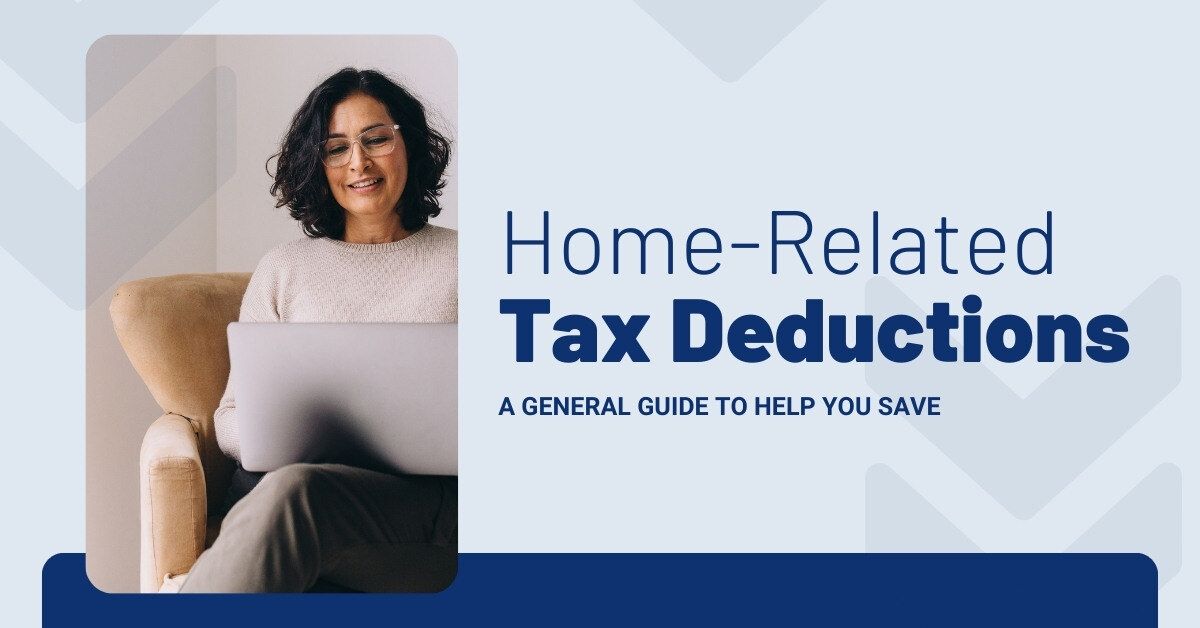
Mid-Year Market Update for 2024: What Buyers and Sellers Need to Know
Last December, when the Federal Reserve projected a series of benchmark rate cuts in the coming year, some analysts speculated that mortgage rates—which had recently peaked near 8%—would fall closer to 6% by mid-2024.1,2,3 Unfortunately, persistent inflation has delayed the central bank’s timeline and kept the average 30-year mortgage rate hovering around 7% so far this year.2 While elevated mortgage rates have continued to dampen the pace of home sales and affordability, there have been some positive developments for frustrated homebuyers. Nationwide, the inventory shortage is starting to ease, and an uptick in starter homes coming on the market has helped to slow the median home price growth rate, presenting some relief to cash-strapped buyers.4 There are also signs that sellers are adjusting to the higher rate environment, as a growing number list their properties for sale.4 Still, economists say a persistent housing deficit—combined with tighter lending standards and historically high levels of home equity—will help keep the market stable.5 What does that mean for you? Read on for our take on this year's most important real estate news and get a sneak peek into what analysts predict is around the corner for 2024.
MORTGAGE RATE CUTS WILL TAKE LONGER THAN EXPECTED At its most recent meeting on May 1, the Federal Reserve announced that it would keep its overnight rate at a 23-year high in response to the latest, still-elevated inflation numbers.6 While mortgage rates aren’t directly tied to the federal funds rate, they do tend to move in tandem. So, while expected, the Fed’s announcement was further proof that a meaningful decline in mortgage rates—and a subsequent real estate market rebound—is farther off than many experts predicted. “The housing market has always been interest rate sensitive. When rates go up, we tend to see less activity,” explained Realtor.com chief economist Danielle Hale in a recent article. “The housing market is even more rate sensitive now because many people are locked into low mortgage rates and because first-time buyers are really stretched by high prices and borrowing costs.”7 Many experts now speculate that the first benchmark rate cut will come no sooner than September, so homebuyers hoping for a cheaper mortgage will have to remain patient. “We’re not likely to see mortgage rates decline significantly until after the Fed makes its first cut; and the longer it takes for that to happen, the less likely it is that we’ll see rates much below 6.5% by the end of the year,” predicted Rick Sharga, CEO at CJ Patrick Company, in a May interview.
What does it mean for you? Mortgage rates aren’t expected to fall significantly any time soon, but that doesn’t necessarily mean you should wait to buy a home. A drop in rates could lead to a spike in home prices if pent-up demand sends a flood of homebuyers back into the market. Reach out to schedule a free consultation so we can help you chart the best course for your home purchase or sale.
BUYERS ARE GAINING OPTIONS AS SELLERS RETURN TO THE MARKET There is a silver lining for buyers who have struggled to find the right property: More Americans are sticking a for-sale in their yard.9 Given the record-low inventory levels of the past few years, this presents an opportunity for buyers to find a place they love—and potentially score a better deal. In 2023, inventory remained scarce as homeowners who felt beholden to their existing mortgage rates delayed their plans to sell. However, a recent survey by Realtor.com shows that a growing number of those owners are ready to jump in off the sidelines.10 While the majority of potential sellers still report feeling “locked in” by their current mortgage, the share has declined slightly (79% now versus 82% in 2023). Additionally, nearly one-third of those “locked-in” owners say they need to sell soon for personal reasons, and the vast majority (86%) report that they’ve already been thinking about selling for more than a year.10 Renewed optimism may also be playing a part. “Both our ‘good time to buy’ and ‘good time to sell’ measures continued their slow upward drift this month,” noted Fannie Mae Chief Economist Doug Duncan in an April statement.11 However, the current stock of available homes still falls short of pre-pandemic levels, according to economists at Realtor.com. “For the first four months of this year, the inventory of homes actively for sale was at its highest level since 2020. However, while inventory this April is much improved compared with the previous three years, it is still down 35.9% compared with typical 2017 to 2019 levels.”
What does it mean for you? If you’ve had trouble finding a home in the past, you may want to take another look. An increase in inventory, coupled with relatively low buyer competition, could make this an ideal time to make a move. Reach out if you’re ready to search for your next home. If you’re hoping to sell this year, you may also want to act now. If inventory levels grow, it will become more challenging for your home to stand out. We can craft a plan to maximize your profits, starting with a professional assessment of your home’s current market value. Contact us to schedule a free consultation.
HOME PRICES ARE RISING AT A MORE MANAGEABLE PACE Homebuyers struggling with high borrowing costs have something else to celebrate. The national median home price has remained relatively stable over the past year, due to sellers bringing a greater share of smaller, more affordable homes to the market.4 In addition to offering cheaper homes, a recent survey found that home sellers are also adjusting their expectations when it comes to pricing. In many regions, just 12% anticipate a bidding war (down from 23% last year) and only 15% expect to sell above list price (versus 31% in 2023).10 But buyers shouldn’t expect a fire sale. According to Realtor.com’s April Housing Market Trends Report, “On an adjusted per-square-foot basis, the median list price grew by 3.8%, as homes continue to retain their value despite increased inventory compared with last year.”4 Dr. Selma Hepp, chief economist for the data firm CoreLogic, projects that home prices will keep rising at a gradual pace through the rest of 2024. “Spring home price gains are already off to a strong start despite continued mortgage rate volatility. That said, more inventory finally coming to market will likely translate to more options for buyers and fewer bidding wars, which typically keeps outsized price growth in check.”
What does it mean for you? An increase in more affordable housing stock is great news, especially for first-time buyers. And with home values expected to keep rising, an investment in real estate could help you build wealth over time. Reach out to discuss your goals and budget, and we can help you decide if you’re ready to take your first step on the property ladder.
DESIRE TO OWN PERSISTS, BUT AFFORDABILITY REMAINS AN OBSTACLE Surveys show that the American dream of homeownership is alive and well, despite the financial challenges. In fact, a recent poll by Realtor.com found that 55% of Millennial and 40% of Gen Z respondents believe that now is a good time to buy a home.13 According to Fannie Mae Chief Economist Doug Duncan, buyers are starting to adapt to the new economic reality. “With the historically low rates of the pandemic era now firmly behind us, some households appear to be moving past the hurdle of last year’s sharp jump in rates, an adjustment that we think could help further thaw the housing market. We noted in our latest monthly forecast that we expect to see a gradual increase in home listings and sales transactions in the coming year." The Realtor.com study also revealed that even a small drop in mortgage rates could give a big boost to homebuyer demand and affordability. In fact, 40% of the buyers polled would find a home purchase attainable if rates fall under 6%, and an additional 32% plan to enter the market if rates dip below 5%.13 But waiting for rates to drop isn’t the only approach that Americans are using to afford a home. A survey by U.S. News & World Report found that determined homebuyers are employing a variety of strategies, including shopping multiple lenders (52%), purchasing discount points to lower their rates (36%), and opting for adjustable-rate mortgages (36%). More than three-quarters of today’s buyers also hope to refinance to a lower rate in the future.14 Despite the obstacles, these respondents remain steadfast in their desire to own a home, listing financial benefits, stability, and more space as their top motivations for wanting to buy.
What does it mean for you? If you’re dreaming of a new home, let’s talk. We can help you evaluate your options and connect you with a mortgage professional to discuss strategies you can use to make your monthly payments more affordable. And remember, in many cases, you can refinance if rates drop in the future. If you have plans to sell, it will be crucial to enlist the help of a skilled agent who knows how to maximize your profit margins and draw in qualified buyers. Reach out for a copy of our multi-step Property Marketing Plan.
WE'RE HERE TO GUIDE YOU While national housing reports can give you a “big picture” outlook, much of real estate is local. And as local market experts, we know what's most likely to impact sales and drive home values in your particular neighborhood. As a trusted partner in your real estate journey, we can guide you through the market's twists and turns. If you’re considering buying or selling a home in 2024, contact us now to schedule a free consultation. Let’s work together and craft an action plan to meet your real estate goals.
The above references an opinion and is for informational purposes only. It is not intended to be financial, legal, or tax advice. Consult the appropriate for advice regarding your individual needs.
Sources:
- CBS News - https://www.cbsnews.com/news/federal-reserve-rate-decision-pause-december-13/
- Bankrate - https://www.bankrate.com/mortgages/historical-mortgage-rates/
- Fannie Mae - https://www.fanniemae.com/media/50096/display
- Realtor.com - https://www.realtor.com/research/april-2024-data/
- Bankrate - https://www.bankrate.com/real-estate/is-the-housing-market-about-to-crash/
- NPR - https://www.npr.org/2024/05/01/1248454950/federal-reserve-inflation-interest-rates
- Realtor.com - https://www.realtor.com/news/trends/will-the-fed-cut-interest-rates-2024-housing-market/
- The Mortgage Reports - https://themortgagereports.com/32667/mortgage-rates-forecast-fha-va-usda-conventional
- Fast Company - https://www.fastcompany.com/91106568/housing-market-inventory-rising-across-country-maps
- Realtor.com - https://www.realtor.com/research/2023-q1-sellers-survey-btts/
- Fannie Mae - https://www.fanniemae.com/research-and-insights/surveys-indices/national-housing-survey
- CoreLogic - https://www.corelogic.com/press-releases/corelogic-us-annual-home-price-growth-slows-still-up-by-over-5-february/
- Realtor.com - https://www.realtor.com/research/america-dream-survey-feb-2024/
- US News & World Report - https://money.usnews.com/loans/mortgages/articles/2024-homebuyer-survey




